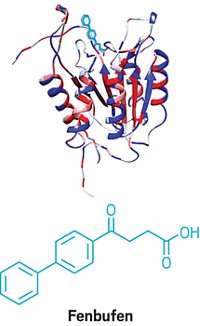Advertisement
Grab your lab coat. Let's get started
Welcome!
Welcome!
Create an account below to get 6 C&EN articles per month, receive newsletters and more - all free.
It seems this is your first time logging in online. Please enter the following information to continue.
As an ACS member you automatically get access to this site. All we need is few more details to create your reading experience.
Not you? Sign in with a different account.
Not you? Sign in with a different account.
ERROR 1
ERROR 1
ERROR 2
ERROR 2
ERROR 2
ERROR 2
ERROR 2
Password and Confirm password must match.
If you have an ACS member number, please enter it here so we can link this account to your membership. (optional)
ERROR 2
ACS values your privacy. By submitting your information, you are gaining access to C&EN and subscribing to our weekly newsletter. We use the information you provide to make your reading experience better, and we will never sell your data to third party members.
Biological Chemistry
Platinum-containing cancer drugs have different mechanisms
Unlike cisplatin, oxaliplatin works by inducing ribosome biogenesis stress
by Celia Henry Arnaud
March 6, 2017
| A version of this story appeared in
Volume 95, Issue 10

Platinum-containing drugs are used to treat many types of cancer. Drugs such as carboplatin and oxaliplatin were developed to avoid some of the side effects and treatment resistance associated with traditional cisplatin. Researchers thought all these drugs kill cells by triggering a DNA-damage response. But oxaliplatin has an unusual side-effect profile and works against cancers for which other drugs, such as cisplatin, are minimally effective. A team led by Michael T. Hemann and Stephen J. Lippard of MIT now demonstrates that oxaliplatin works through a different mechanism (Nat. Med. 2017, DOI: 10.1038/nm.4291). The researchers used RNA interference to target genes with known or suspected roles in cell-death signaling pathways and to see how those pathways responded to various platinum-containing drugs. They found that instead of killing cells through DNA damage, oxaliplatin induces ribosome biogenesis stress, in which cells produce large quantities of the protein-translation machinery, throwing protein production out of whack. In a bit of a vicious cycle, ribosome biogenesis stress may further sensitize cells to oxaliplatin. The findings suggest that platinum drugs don’t necessarily function interchangeably with their derivatives, the researchers note.




Join the conversation
Contact the reporter
Submit a Letter to the Editor for publication
Engage with us on Twitter